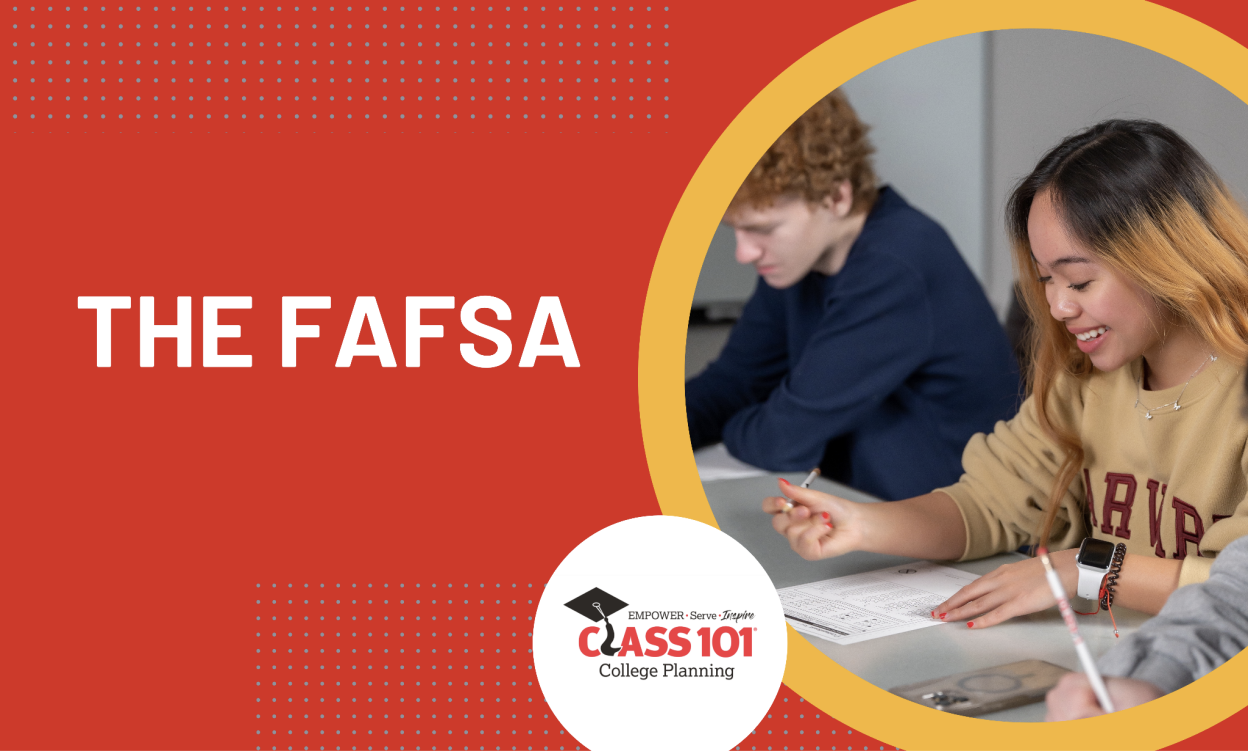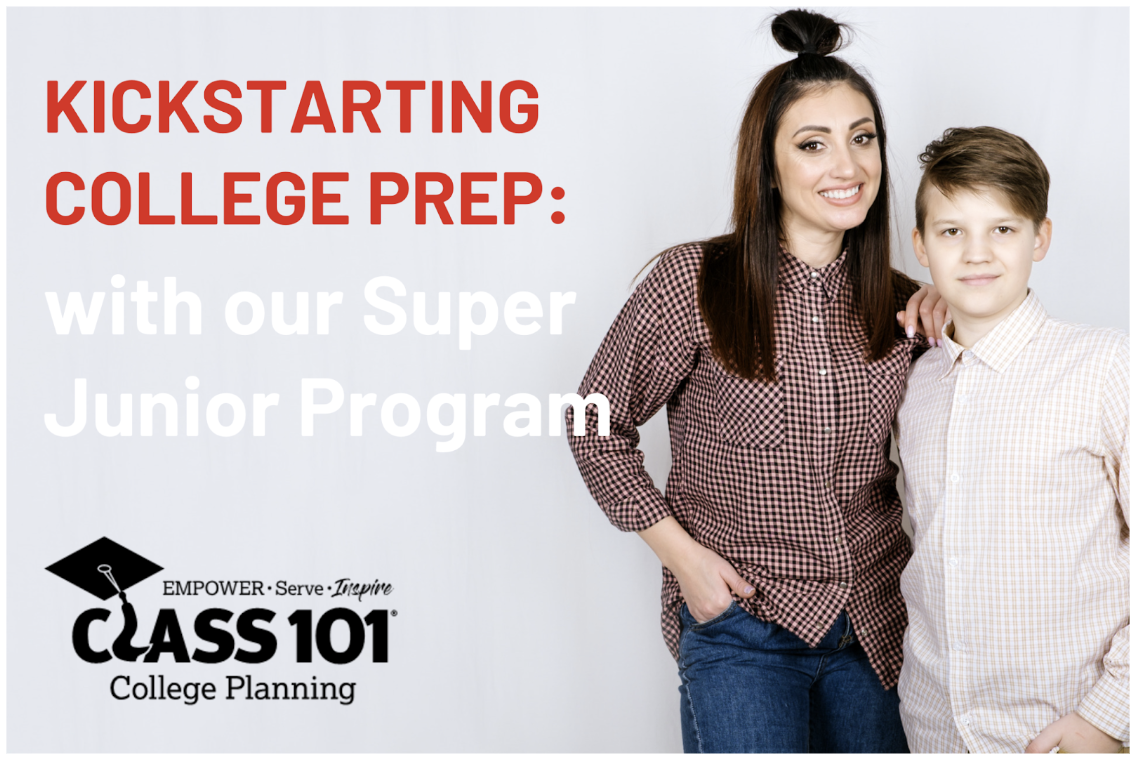December 8, 2022

The form we commonly refer to as the FAFSA stands for the Free Application for Federal
Student Aid. This form is used by college-going students to apply for financial aid and
becomes available each year on October 1st.
As college advisors, we work with many families who come to us with preconceived ideas
about the FAFSA. Parents often tell us they do not believe they will qualify for financial aid so
they do not plan to complete the FAFSA.
With so many scholarship and financial aid opportunities tied to the FAFSA, we ALWAYS
advise Class 101 families to file a FAFSA, even when they may not qualify for need-based
financial aid.
For a quick summary on the FAFSA and why everyone should complete it, you can watch
Brandon, Florida owner, Randy Stegemoller, in our FAFSA overview video:
Link: https://www.youtube.com/watch?v=YhHm4ilq2qE
Types of Financial Aid
Completing the FAFSA gives students and parents consideration for many different types of
financial aid to help cover the costs of college. While most are need-based financial aid, there
are also federal student loans that are not based on need. However, in order to take out an
unsubsidized student loan (a loan not based on need), a student must submit a FAFSA.
Filing the FAFSA gives you consideration for the following types of financial aid:
● Pell Grants
● TEACH Grants
● Work-Study Jobs
● Subsidized Student Loans
● Unsubsidized Student Loans
● Parent PLUS Loans
● Need-Based Scholarships
Scholarships
While some financial aid needs to be repaid, scholarships do not. They are the best way to pay
for college and also the most competitive to win compared to other financial aid options. We
find that many scholarships now require a student to share their FAFSA information. Not all
scholarships ask for a FAFSA, but we encourage students who are planning to apply for any
scholarships to complete the FAFSA and not potentially disqualify themselves from a desired
scholarship.
Submitting a FAFSA allows students to earn as much free money as they can to use toward
paying for college.
When to complete the FAFSA
The FAFSA is first completed during a student’s Senior year of high school and then again
each year the student is in college and wants to be considered for financial aid.
We recommend completing the FAFSA soon after it opens on October 1st to avoid missing
out on any money. Some federal funds do run out and families who apply late may not be
awarded a grant they would otherwise have qualified for.
How to complete the FAFSA
To start your FAFSA, visit studentaid.gov. Be sure to visit the government website and know
that the FAFSA is always free to submit.
Next, set up one account for the student and another account for the parent. This will allow
access to the same FAFSA but with logins for both student and parent.
Finally, have your tax forms from two years prior handy. You will be asked to submit these
numbers on the FAFSA.
Still have FAFSA Questions?
We help parents submit the FAFSA correctly and receive maximum aid each year. Reach out
to our experienced Class 101 Brandon, FL college advisors to learn more.

February 21, 2025
With the cost of college rising, one of the biggest ways Class 101 supports families in their college planning process is by helping them understand and work through financial aid offers. We want to stress that while receiving a financial aid package from a private college or university is an important step toward making higher […]
Read More >
January 13, 2025
ge is an exciting milestone, but it can also bring uncertainty. One possible outcome is receiving a deferral letter from a university. While it’s not the decision most students hope for, a deferral isn’t a “no” — it’s an opportunity.Here’s what a deferral means, why universities issue them, and how you can turn it into […]
Read More >
January 3, 2025
Junior year of high school is a turning point for students. It’s the year when college dreams begin to feel within reach, and the countdown to application season officially begins. With just 10 months to go before seniors start submitting applications, eleventh graders face big decisions about their future. That’s where Class 101’s Super Junior […]
Read More >